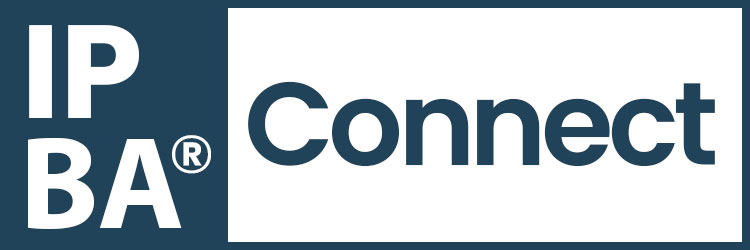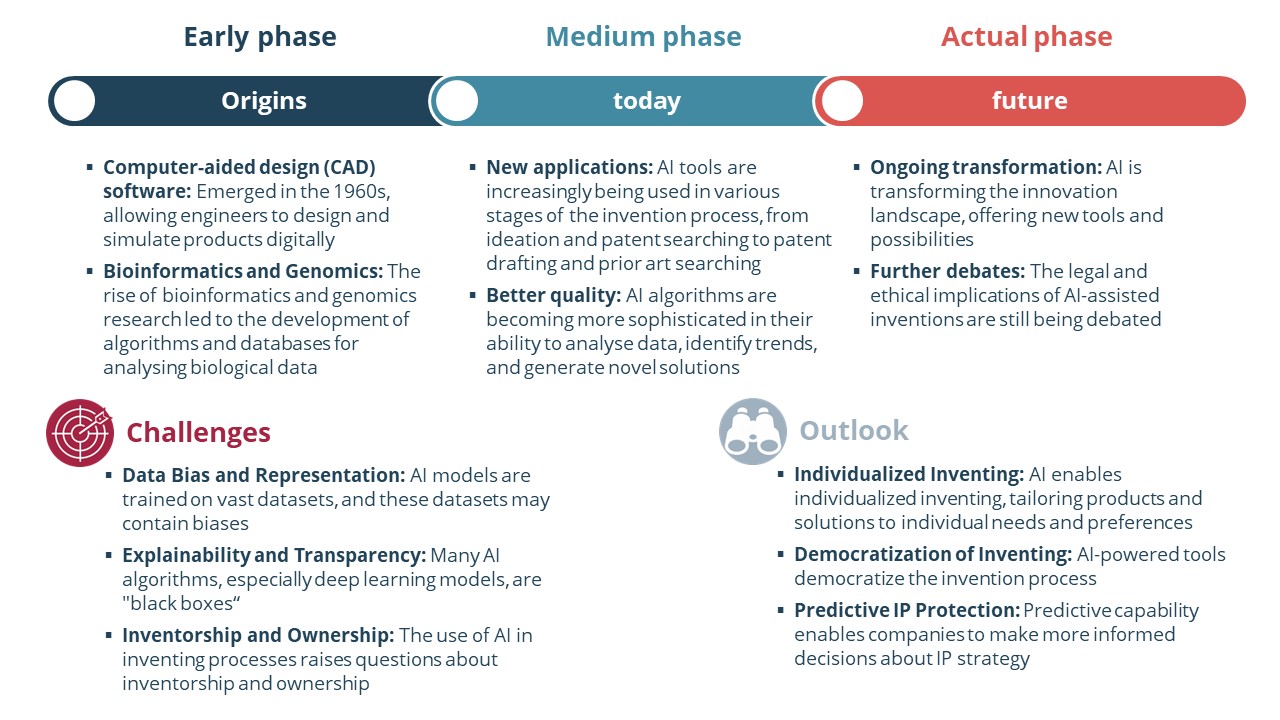AI is no longer a futuristic concept; it’s actively reshaping how inventions👉 A novel method, process or product that is original and useful. are born and protected. AI tools are being used to analyse vast datasets, identify trends, and generate novel solutions, accelerating the pace of innovation👉 Practical application of new ideas to create value. across industries. This raises questions about inventorship, patentability, and the very nature of invention itself. These are hot topics in the IP world, with ongoing debates about legal frameworks and ethical considerations.
AI-powered tools are revolutionizing white space analysis, the process of identifying untapped areas of innovation. By analysing patent👉 A legal right granting exclusive control over an invention for a limited time. landscapes and technological trends, AI algorithms can pinpoint areas where there is limited IP activity or where existing solutions fall short. This allows companies to strategically focus their R&D efforts on promising “white spots” with less risk👉 The probability of adverse outcomes due to uncertainty in future events. of infringement👉 Unauthorized use or exploitation of IP rights. and a higher potential for market disruption.
Prior art searching, a critical step in patent prosecution, is becoming more efficient and comprehensive with AI. AI algorithms can sift through massive databases of patents and scientific literature to identify relevant prior art, helping inventors and patent attorneys assess the novelty👉 Requirement that an invention must be new and not previously disclosed. and non-obviousness of their inventions. Continuous prior art evaluation throughout the invention process can help avoid costly dead ends and ensure that R&D efforts are focused on truly patentable solutions.
AI is streamlining the often tedious and time-consuming process of patent drafting. Natural language processing (NLP) tools can assist in generating patent claims, summarizing inventions, and ensuring consistency and accuracy in patent applications. This not only saves time and resources but also helps to improve the quality and clarity of patent documents.
AI is even being used to stimulate creativity and generate new ideas. AI-powered brainstorming tools can help inventors explore different concepts, identify potential solutions, and overcome creative blocks. By providing access to a wider range of information and perspectives, AI can help expand the ideation👉 Creative process of generating and developing new ideas. process and lead to more innovative and impactful solutions.
The use of AI in invention processes is still in its early stages, but it’s clear that it has the potential to revolutionize the way we innovate. As AI tools become more sophisticated and accessible, we can expect to see even more exciting developments in this space. However, it’s crucial to address the ethical and legal challenges that arise with AI-assisted invention to ensure that this technology is used responsibly and for the benefit of society.








